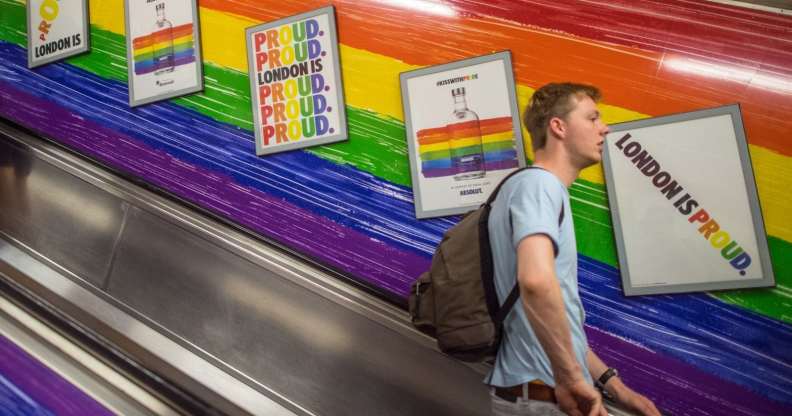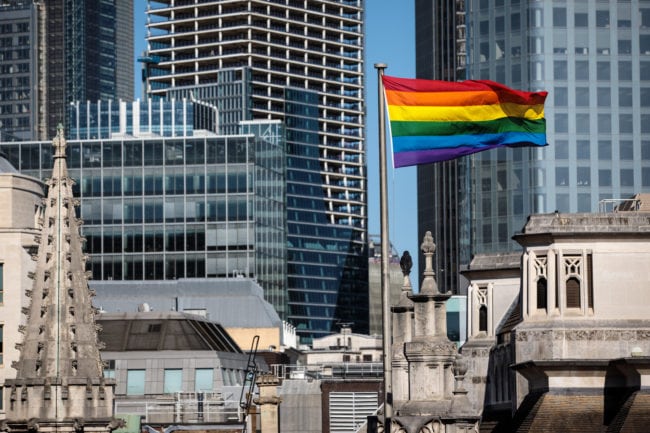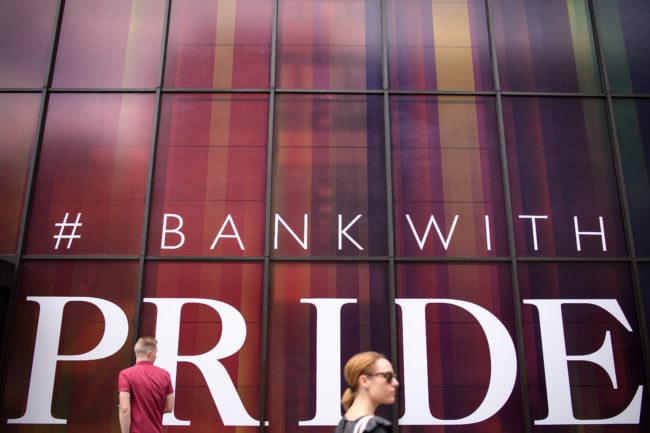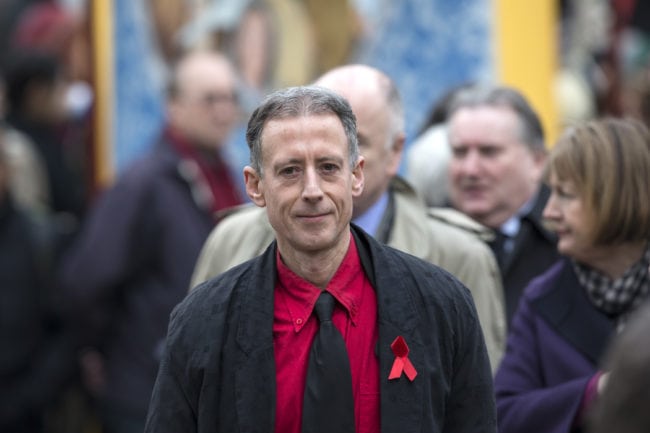Peter Tatchell: Why is London Pride so small compared to rest of the world?

A man rides a tube escalator decorated with the Pride flag colours. (Carl Court/Getty Images)
LGBT+ rights activist Peter Tatchell, one of the pioneers of London Pride, feels that the number of restrictions imposed on this year’s event constitutes “anti-LGBT discrimination.”
Tatchell criticised the Mayor of London, Westminster Council and the Metropolitan Police for limiting the number of participants in Saturday’s Pride march to 30,000.
“The parade feels increasingly regimented, commodified and straight-jacketed,” Tatchell commented.
“Only a tiny fraction of those who want to march on Saturday will be allowed to do so. If there was no limit, 100,000 people would march, like in the 1990s.”

- The rainbow Pride flag flutters over the Guildhall after replacing the flag of the City of London to mark this weekend’s Pride in London Parade (ack Taylor/Getty)
The LGBT activist and director of the Peter Tatchell Foundation pointed out that there were no such restrictions on other London events like the Notting Hill Carnival.
He also stressed that Dublin, a city clearly smaller than the British capital, had double the number of people marching during their parade last week.
“This is a LGBT+ and national embarrassment,” said Tatchell. “The size and spontaneity of the parade is being strangled by regulations, bureaucracy, red-tape and the unreasonable dictates of the city authorities.”
For Tatchell, these restrictions on Pride marchers and the high fees that LGBT+ associations have to pay have limited the Pride in London committee’s powers.

- The exterior of Coutt’s bank displays a Pride slogan on July 4, 2018, ahead of the upcoming “Pride London” event in London (Leon Neal/Getty)
Participations costs as well as security fees have led corporations to take over the event’s parade, which in turn has caused the event itself to be “degayed” and “dumbed down” into an apolitical street party, said Tatchell.
“The parade looks like an almost endless motorcade of corporate promotion,” he said. “Many of the companies have degayed their floats. They don’t mention LGBT+, just Pride.”
Tatchell thinks that businesses are embracing Pride in order to court LGBT customers, a phenomenon usually called pink capitalism or rainbow capitalism.
“The ideals of LGBT+ equality are barely visible. Last year I counted only ten parade groups with a LGBT+ human rights message,” he added.

- Peter Tatchell in 2014. (Photo by Oli Scarff/Getty Images)
The Peter Tatchell Foundation is calling for people to take back Pride. “Perhaps it’s time to revert to the LGBT+ liberation ethos of the first UK Pride in 1972? … It was political and fun; without all the restrictions, costs and red tape that are strangling Pride today.”
Tatchell thinks getting rid of motorised floats would be a way to cut costs and would free Pride from these monetary restrictions.
In response to Tatchell, Pride in London co-chair Michael Salter-Church told PinkNews: “One of the many elements we need to consider is that the 30,000 people participating are looked after by a team of over 500 volunteer stewards who are working shifts of up to 10 hours, and if the capacity was increased a large number of new stewards would be needed, which is one of many challenges.
“We would welcome the opportunity to include every person who would like to march within the Parade, but it is not practical at present – and the final marchers in the Parade may find few spectators if they complete the route nine hours after the lead group.
“However, we will continue to review after each year’s event and will work closely with our partners on ways to safely increase the size of the parade.”
London’s Pride Parade will kick off at 12pm from Portland Street in Soho and go on until roughly 5pm on Saturday.
PinkNews reached out to Pride London for comment.

